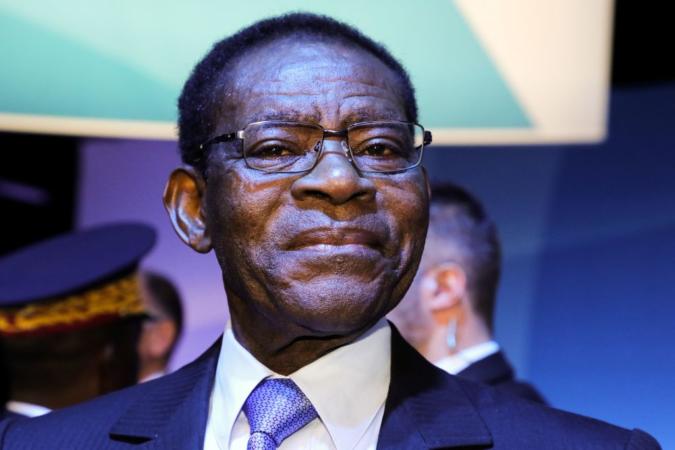This feature is part of Blavity’s African Spotlight series, which highlights heads of state, as well as other politicians and societal leaders, who are currently in power or influencing change on the continent. African leaders are making a significant impact both in their own countries and internationally. Growing diasporas and increasing interconnectivity make developments on the continent more relevant to Black America and people everywhere than ever before.
Many people have never heard of Equatorial Guinea, a nation of 1.5 million people on the west coast of Africa. Fewer still know the name of its president, Teodoro Obiang Nguema Mbasogo, the man who seized power from his own uncle in 1979 and has held it ever since. Having already been in power for 43 years, Obiang just won an election – if that is the proper word in a circumstance where the president holds unchecked power – to rule for six more years. And by placing his own son as vice president, Obiang has all but guaranteed that ruling the small nation will remain a family affair.
Rise to power in a small country
To understand Teodoro Obiang, it is important to know the history of the country he rules. One of the few areas in sub-Saharan Africa colonized by Spain, Spanish Guinea gained independence in 1968. Renamed Equatorial Guinea, the country was initially led by Francisco Macías Nguema. Macias, as he was often known, had served various roles in the colonial administration of Spanish Guinea. He was also, by many accounts, a madman. Violent and possibly mentally ill, Macias openly admired Adolf Hitler, declared himself resident for life in 1972. He established a cult of personality around himself and eventually banned Christianity from the country. The paranoid Macias killed or jailed thousands of citizens on political charges, possibly committed genocide against ethnic minorities, and killed members of his own family for perceived disloyalty. Perhaps 100,000 or more fled the country in fear.
Ballin’ on a budget
Obiang has also used his time in power to get rich, especially after oil was discovered off the coast of Equatorial Guinea in the 1990s. On paper, this new industry has made the country one of the wealthiest in Africa, but very little of that money has gone to the country’s citizens. Instead, the president and those close to him have been accused of siphoning off significant portions of the billions of dollars that oil has brought into the country. Despite the massive oil revenues, the government spends little on healthcare and education and unnecessary sums on large-scale building projects that allow for funds to be diverted to the personal accounts of those in power. Much of that money has reportedly gone into luxury cars and expensive real estate abroad, much of it in France. The main beneficiaries of oil wealth have not been the people of Equatorial Guinea- who still have to deal with severe poverty – but Obiang’s family, most notably his son Teodoro Nguema Obiang Mangue.
Stuntin’ Like his daddy
“Teodorin,” as the younger Obiang is known, spent much of the 1990s and 2000s abroad in France and California, living a playboy lifestyle. This included buying incredibly expensive mansions in Malibu and Paris; a fleet of luxury cars spread across the US, France and Switzerland; and even a collection of Michael Jackson memorabilia. Teodorin also dated rapper and actress Eve during this time. Despite Teodorin being sanctioned by several countries for embezzling hundreds of millions of dollars from his nation, President Obiang named his son Vice President, setting him up to inherit his father’s position one day. President Obiang has hinted at such a transition. “Equatorial Guinea isn’t a monarchy,” the president said, but added “but if he’s got talent, there’s nothing I can do,” referring to his son following in his footsteps.
With the Obiang family unlikely to give up power any time soon, prospects currently look bleak for Equatorial Guinea. The president lives in constant fear of a coup, like the one that brought him to power, arising to overthrow him. The average citizen, meanwhile, simply struggles to survive while never seeing the benefits of the country’s massive wealth. So while Obiang’s prospects of remaining in power for 50 years may be a significant milestone, it is hardly a cause for celebration for a country that has been dominated by one family and mostly by one man.

